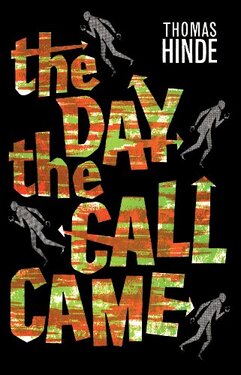Thomas Hinde was the pen name of Sir Thomas Chitty, novelist for thirty years before ditching fiction for books on English country gardens and other pastoral pursuits. The Day the Call Came (1964) was his seventh novel and, while I’ve no idea if it’s indicative of his oeuvre (they’re mostly out of print), it was reissued in 2013 and, even over the last decade, has garnered scant appreciation. The eagle-eyed foreword by Ramsey Campbell discusses its impact on his own work and cites it within his own survey of “great horror novels not usually regarded as such”.
It’s more a thriller, with the escalating tension on a sunny suburban scale rather than the high danger espionage thrillers among its contemporaries a la Deighton and Le Carre. The narrator, Harry Bale, late thirties and married with two kids, is a seemingly normal chap who one day receives ‘the call’. It’s no more than a note tucked in an envelope with the typed words ‘STANDY BY’, but it’s all that’s needed to activate him, as if he’s some sleeper cell that has long awaited instructions.
His mission however is unclear and Bale eyes the world around him, interpreting everything as possible instructions, finding meaning in potentially innocuous events. Where casual conversation is interpreted with heightened meaning and never at face value, we’re never quite sure of Bale’s intentions when he tells us that he knew what he had to do. Living within Bale’s head for the duration of the novel reveals a melting pot of conspiracy and suspicion delivered with surface-level sanity. While his explanations are obtuse and he tells us of how things were, we can never truly believe him, and, worse, never truly know what he’s thinking even when he tells us.
Although not without humour, the dread that builds up over the course of the novel hangs on every page. As Bale recants conversations and voices suspicions we wonder if there’s meat there or if his psychosis is besting his rationality. In this sunshine-soaked tale the light can’t reach the darker parts of its paranoid mind and the mystery that creates is all the more interesting. It leaves us to make a call of our own: how to rationalise Bale and select the truth.
